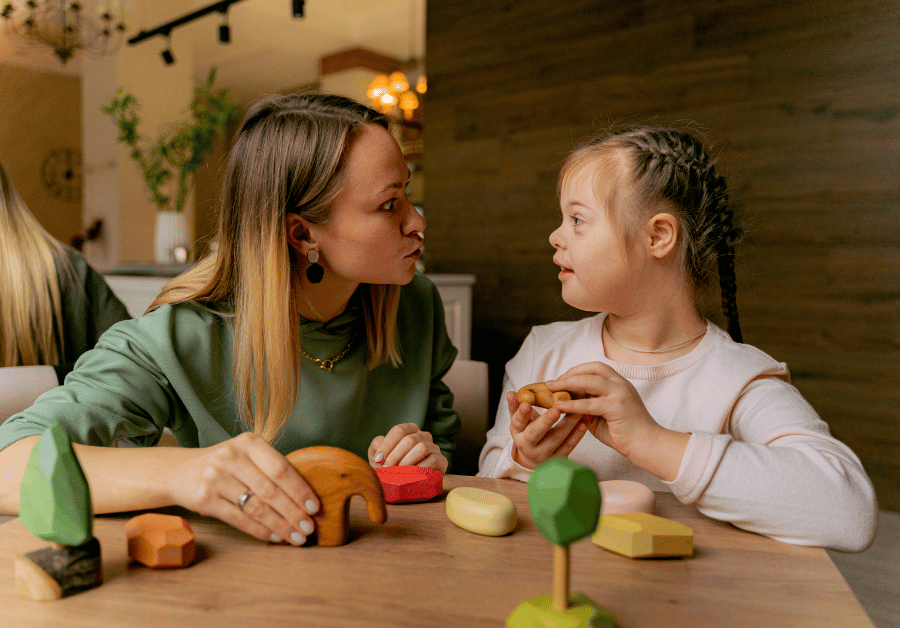NDIS Improved Daily Living: Your Guide to Thriving in Australia
NDIS Improved Daily Living: A Comprehensive Guide for Australians
Are you looking to understand how the NDIS can help you or a loved one achieve NDIS improved daily living? This comprehensive guide is designed to provide clarity and support for Australians navigating the National Disability Insurance Scheme (NDIS). Whether you're in Adelaide, Sydney, Melbourne, Perth, Brisbane, or Hobart, we'll explore the various ways the NDIS can fund supports and services to enhance your independence and quality of life. Alliance Care Support is here to empower individuals with disabilities by providing tailored care, support, and resources. With a focus on Supported Independent Living (SIL), in-home care, and respite services, we create environments that foster independence and enhance quality of life. Our NDIS-approved homes are equipped with accessibility features, ensuring safety and comfort for participants. Our mission is to help clients achieve their personal goals while receiving compassionate care, enabling them to lead fulfilling lives in a supportive community.
Understanding NDIS and Improved Daily Living

The NDIS aims to provide Australians with a disability the support they need to live an ordinary life. A core component of this is funding for improved daily living. This encompasses a wide range of supports designed to build your capacity building and living skills, enabling you to participate more fully in your community and achieve your personal goals. It's about fostering independence and empowering you to make choices about your life.
What Does "Improved Daily Living" Actually Mean?
"Improved daily living" under the NDIS refers to the supports and services that help you develop or maintain the skills necessary for everyday tasks. These tasks can range from personal care and household management to social interaction and community participation. The focus is on building your capacity to live as independently as possible.
NDIS Funding Categories and Improved Daily Living
The NDIS funds supports across various categories. Supports related to improved daily living typically fall under the capacity building support category. However, depending on your individual needs and NDIS plan, you may also find relevant funding under core supports. Understanding these NDIS categories is crucial for effectively utilizing your supports budget.
Capacity Building Supports for Daily Living
NDIS capacity building supports are designed to help you develop new skills and increase your independence. Examples of supports funded under this category that directly relate to improved daily living skills include:
- Training in personal care tasks (e.g., showering, dressing)
- Skills development for household management (e.g., cooking, cleaning, laundry)
- Social skills training to improve communication and interaction with others
- Support to participate in community activities and access services
- Assistive technology to aid with daily tasks
- Therapy services, such as occupational therapy, to address specific functional limitations
Core Supports for Daily Living
While capacity building focuses on long-term skills development, core supports provide assistance with immediate needs. Some core supports relevant to daily living include:
- Assistance with daily personal activities
- Transport to access essential services and activities
- Household tasks
How to Access NDIS Funding for Improved Daily Living
The process of accessing NDIS funding for improved daily living involves several key steps:
- Determine Eligibility: Ensure you meet the NDIS eligibility criteria, which generally includes residency requirements, age limits, and the presence of a permanent and significant disability.
- Prepare for Your Planning Meeting: Gather information about your current dailylivingskills, your goals for improvement, and the types of support you believe would be beneficial. Consider what daily activities you find challenging and how help from the NDIS could make a difference.
- Attend Your Planning Meeting: Discuss your needs and goals with your NDIS planner. Be clear about how specific supports will contribute to your improved daily living.
- Receive Your NDIS Plan: Review your plan carefully to ensure it includes funding for the supports you requested. If you believe the plan doesn't adequately address your needs, you have the right to request a review.
- Implement Your Plan: Choose service providers who can deliver the supports outlined in your plan. This may include organisations offering dailylivingskills training, occupational therapy, or assistivetechnologyservices.
Examples of NDIS Funded Supports for Improved Daily Living in Adelaide and Beyond
Let's look at some specific examples of how the NDIS can fund supports to improve daily living for individuals in Adelaide and other Australian cities:
- Cooking Skills Training: For someone who wants to live more independently, the NDIS can fund a support worker to provide one-on-one training in meal planning, grocery shopping, and food preparation. This can significantly increase their skills and independence.
- Assistive Technology for Household Tasks: If someone has difficulty with mobility, the NDIS may fund assistivetechnology such as a robotic vacuum cleaner or a modified kitchen appliance to make household tasks easier.
- Social Skills Group: For individuals who struggle with social interaction, the NDIS can fund participation in a social skills group where they can learn and practice communication skills in a supportive environment.
- Occupational Therapy for Personal Care: An occupational therapy can assess your needs and provide strategies and equipment to make personal care tasks, like showering and dressing, more manageable.
- Support Worker for Community Access: If someone needs assistance to participate in community activities, the NDIS can fund a support worker to provide transport and help them navigate public transport or attend appointments.
The Role of Allied Health Professionals

Allied health professionals play a vital role in helping individuals achieve NDIS improved daily living. These professionals, such as occupational therapists, physiotherapists, and speech therapists, can assess your needs, develop tailored intervention plans, and providetraining and support to improve your functional skills. It is important to note that if you are seeking services from an allied health professional, you can check if they are currently registered under the Australian Health Practitioner Regulation Agency (AHPRA). This ensures they meet the required standards and qualifications. Careside psychologist can also provide valuable support.
NDIS Capacity Building: Improved Daily Living - The Careside Perspective
At Alliance Care Support, we understand the importance of NDIS capacity building when it comes to achieving improved daily living. Our team of experienced professionals works closely with NDIS participants to identify their goals and develop tailored support plans that address their specific needs. We offer a range of services designed to buildskills, increase independence, and empower individuals to live fulfilling lives. This includes podantics podiatry and podiatry Adelaide.
15 Improved Daily Living Skills | DHS Disability Services
The DHS disabilityservices highlight several key skills that contribute to improved daily living. These include but are not limited to:
- Personal Hygiene
- Household Chores
- Meal Preparation
- Money Management
- Time Management
- Communication Skills
- Social Skills
- Problem-Solving
- Self-Care
- Community Access
- Travel Skills
For individuals living with POTS (Postural Orthostatic Tachycardia Syndrome), a condition that affects blood flow and can cause dizziness and fatigue, improving daily living requires specific strategies. The Australian POTS Foundation can provide valuable information and support. Some helpful tips include:
- Increasing fluid intake to at least 2-3 litres of waterperday.
- Increasesaltintake to around 10 gramsperday, under medicalsupervision.
NDIS Developmental Educator Services Adelaide | Everyday Independence

NDIS developmentaleducatorservices in Adelaide focus on buildingcapacity and promoting everydayindependence. A developmental educator can work with you to:
- Assess your dailylivingskills and identify areas for improvement.
- Develop a tailored plan to increase your skills and independence.
- Provide training and support to help you achieve your goals.
- Connect you with other relevant services and supports.
Social Work NDIS | Adelaide | Parafield & Unley | Activ8 Mind
Social workNDISservices in Adelaide, including areas like Parafield and Unley, can provide valuable support for individuals with disabilities. Activ8 Mind and other organisations offer socialworkservices that can help you:
- Navigate the NDIS plan and access the support you need.
- Developselfadvocacyskills and empower individuals to make informed choices about your life.
- Communicate social and work.
- Overcome challenges and increase your participation in the community.
NDIS Occupational Therapy Adelaide | Everyday Independence
Ready to Improve Your Daily Living Skills?
Contact Us TodayNDIS occupational therapy in Adelaide focuses on providing assistive technologies to make daily living easier, improving social skills and increasing independence. Occupational therapists can help you:
- Assess your functional abilities and identify areas where assistive technology could be beneficial.
- Recommend and prescribe appropriate assistivetechnologies.
- Provide training on how to use assistivetechnologies effectively.
- Modify your home environment to improve accessibility.
Improved Daily Living | Access4u
Organisations like Access4u offer comprehensive improved daily livingservices, focusing on building cbsupports and connecting you with relevant service providers. They can assist with:
- PlanNDIScapacitybuildingsupports
- Building supports budget improved
- Daily activity assessment training
- Finding the right therapy to helpincrease your skills
- Question 1: What is "Improved Daily Living" under the NDIS?▲Improved Daily Living" refers to NDIS-funded supports that help participants build or maintain essential life skills. These can include personal care, meal preparation, household management, communication, and social participation. The goal is to increase your independence and ability to participate in daily life and your community.Question 2: Who is eligible for Improved Daily Living funding through the NDIS?▲
Eligibility is based on NDIS access requirements. You must have a permanent and significant disability that affects your daily functioning. Your need for skill-building in daily living activities should be clearly outlined in your NDIS plan under Capacity Building or Core Supports.
Conclusion: Empowering Australians Through NDIS Improved Daily Living
The NDIS provides a valuable framework for Australians with a disability to achieve NDIS improved daily living. By understanding the available supports, accessing the right services, and working with experienced professionals, you can unlock your potential and live a more fulfilling and independent life. Remember to focus on building your skills, increasing your independence, and actively participating in your community. Whether you're in Adelaide, Sydney, Melbourne, Perth, Brisbane, or Hobart, Alliance Care Support is here to support you on your journey. Contact us today to learn more about how we can help you achieve your goals for improved daily living.
For more information on how Alliance Care Support can assist you with your NDIS goals, visit our website: Alliance Care Support or email us at support@alliancecaresupport.com.au.
